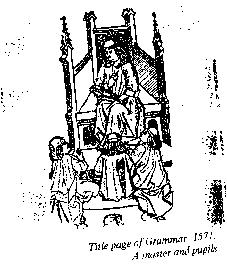
39
and dramatic heritage. Spenser's the Shepheards Calendar (1579) was a landmark in the history of English
poetry, his masterpiece was The
Faerie Queene (1589, 1596) which mirrored in allegories the age of his
glorious sovereign the Queen, and her kingdom in Fairy-land.
In the last decade of Elizabeth's reign Shakespeare wrote about 20 plays, from Henry VI to Hamlet.
The English Renaissance has reached the greatest height in the field of theatrical Art. The Shakespeare's
(drama) plays, his humanism and deeply popular realism were on the one hand produced on the basis of
outstanding theatrical achievements of the period; on the other hand Shakespeare's drama made the English
theatre an important contribution, achievement of the world culture treasury.
The 16th century was the century of the further consolidation of bourgeois relations. During the Elizabethan
age the ideals of Renaissance embraced a broad spectrum of the population, including the merchants and
citizens.
The philosophical ideas of the period were to serve the further evolution and even the revolutionary changes
that came later.
Francis Bacon (1561-1626) ("Novum Organum"), was the founder of English materialism and applicator of
pragmatic sciences.
Literature, Art and Drama were playing an important role. In 1576 – the first theatre appeared. Public theatres
were attended by aristocrats and Elizabeth I.
The 16th century was the age of transition from the medieval twilight to a more progressive age.
Questions:
1. Who were the first and last monarchs of the Tudor Dynasty?
2. What title was Henry VIII awarded with by the Pope?
3. What was the peculiarity of the Reformation in England?
4. What were the traits of continuity in the foreign policy of the Tudors?
5. Why was the reign of Elizabeth I called "the Golden Age"?
6. What threat was posed by Mary Queen of Scots to the rule of Elizabeth?

